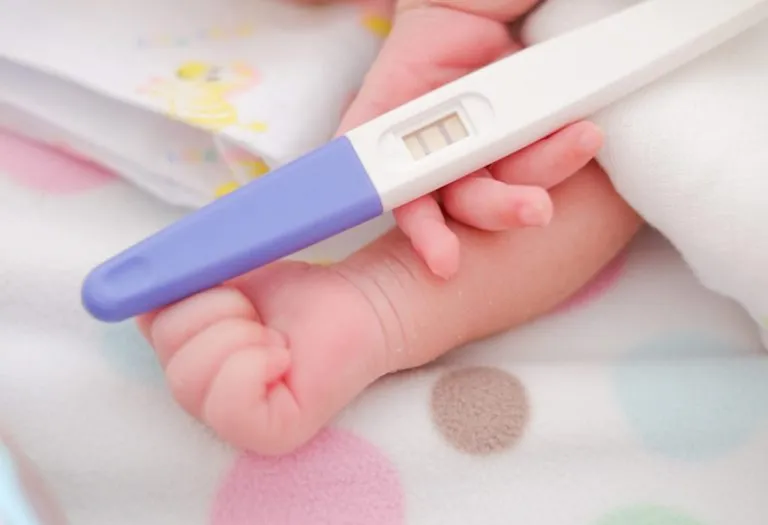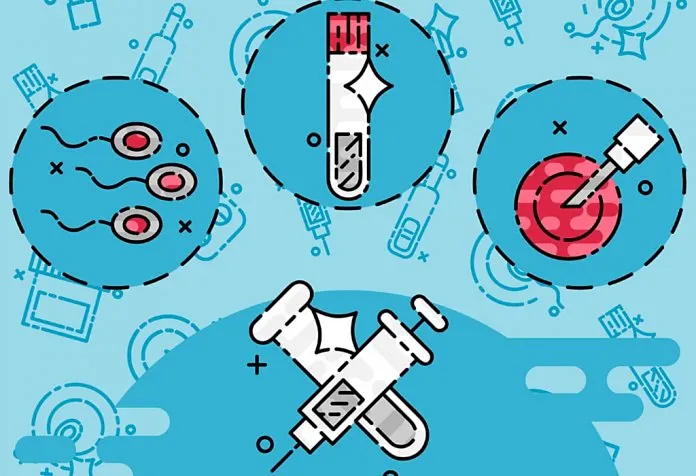How to Get Pregnant Fast With Irregular Periods

Getting pregnant is one of the most magical experiences for most women. However, with the advances in our lives come stress and other lifestyle changes that make getting pregnant a lot harder than it used to be. One of the reasons for difficulty in conceiving is irregular periods. Getting pregnant with irregular periods can be challenging, but it’s not impossible. Irregular cycles can make it harder to predict ovulation, which is key to conception. However, by understanding your body’s signals, making lifestyle adjustments, and seeking medical guidance if needed, you can improve your chances of conceiving. Keep reading to learn simple and effective ways to increase your chances of getting pregnant, even with irregular periods.
What Are Irregular Periods?
Irregular periods are medically known as oligomenorrhoea. This is when the period cycle is either less than 21 days or more than 36 days. Some women can also miss entire cycles. Irregular periods are responsible for 30-40% of all infertility cases. While this might sound like a worrying issue, irregular periods are almost always treatable (1).
What Are the Causes of Irregular Periods?
There are many reasons for an irregular period and most women will experience them at some point in their lives. Some of the causes of irregular periods are (2) (3):
- Change in contraception
- Hormonal imbalances, particularly that of oestrogen and progesterone
- Polycystic Ovarian Syndrome or PCOD
- A sharp decrease or increase in weight
- Obesity
- Stress
- Eating disorders
- Extreme exercising for sports or otherwise
- Breastfeeding
How Do You Know If Your Periods Are Irregular?
You can keep a check on the following factors, and depending on the answers, you can seek medical advice regarding the same.
- Check to see how many days your cycle is. If it is lesser than 21 days or more than 36 days, then that is a strong indication for irregular periods.
- Keep a note of how long you menstruate for. Also, note whether the flow is heavy or light.
- Check if you have clots when you bleed.
- Keep track of your emotions during your period.
- Keep track of the level of cramps you experience while on your period.
How Do Irregular Periods Affect Your Chances of Getting Pregnant?
Irregular periods can be a sign of anovulation which means that your ovaries are not releasing ova on a regular basis. Only when the eggs are being released by the ovaries can they be fertilised. Other reasons for irregular periods that affect your chances of getting pregnant are thyroid imbalances, hormonal imbalances, PCOS, hyperprolactinemia, premature ovarian failure, and low ovarian reserves. In the last condition, the number of eggs in each ovary is lesser than usual.
It is highly important that the reason for your irregular periods be correctly diagnosed and, if possible, rectified. Only then will your chances of conceiving improve. Irregular periods after marriage and chances of pregnancy are interlinked and must be addressed as quickly as possible.
How Can You Get Pregnant With Irregular Periods?
It is possible to conceive even if your periods are not regular. Here are a few options which may help.
1. Tracking Your Ovulation
Once it is determined that you have irregular periods, it becomes important to track when you ovulate in order to plan for conceiving. There are many resources available for you to be able to use to find out if you are ovulating. Your doctor will be able to tell you approximately when you might be ovulating, and you can test to find the precise window. This window is the best opportunity for you to try to get pregnant (4).
2. Frequent Sex
Having regular sex not only increases the chances of you getting pregnant but also reduces your stress levels which in turn increases your chances of getting pregnant. Having sex regularly means that the chances of missing the ovulation window are small. Sex is also known to help manage depression, build cardiovascular endurance, and help improve your relationship with your partner (5).
3. Maintain a Healthy Weight
Your weight significantly impacts your reproductive health. Being overweight or underweight can cause hormonal imbalances that interfere with ovulation. If you’re overweight, losing even 5-10% of your body weight can improve your chances of ovulating regularly (6). If you’re underweight, gaining weight through a nutrient-rich diet can help restore hormone balance.
4. Eat a Fertility-Boosting Diet
A well-balanced diet plays a crucial role in hormone regulation and fertility. Consuming plenty of leafy greens, whole grains, and healthy fats (like avocados, nuts, and olive oil) can support reproductive health. Lean proteins, such as chicken, fish, and beans, also contribute to better egg quality. On the other hand, processed foods, excessive sugar, and trans fats can disrupt hormone levels and should be minimised (7). Drinking plenty of water and incorporating fertility-friendly nutrients like folic acid, iron, and omega-3 fatty acids can further enhance your chances of conception.
5. Manage Stress Levels
Stress can disrupt hormonal balance and interfere with ovulation. When the body experiences prolonged stress, it produces high levels of cortisol (8), which can delay or prevent ovulation. Engaging in relaxation techniques such as yoga, meditation, or deep breathing exercises can help lower stress levels. Making time for hobbies, getting adequate sleep (7-9 hours per night), and maintaining a healthy work-life balance can also contribute to overall reproductive well-being.
6. Take Prenatal Vitamins
Prenatal vitamins not only prepare your body for pregnancy but also help regulate your menstrual cycle. Key nutrients such as folic acid (400-800 mcg daily) support ovulation and reduce the risk of birth defects. Vitamin D is essential for hormone production, and iron and B vitamins contribute to maintaining a healthy menstrual cycle. Omega-3 fatty acids also support reproductive function by improving egg quality (9).
7. Reduce Caffeine and Alcohol
Excessive caffeine and alcohol consumption can negatively impact fertility. High caffeine intake can interfere with ovulation, while alcohol can disrupt hormone levels and egg quality. It’s best to limit caffeine intake to under 200 mg per day (about one cup of coffee) and reduce alcohol consumption when trying to conceive. Replacing these with healthier alternatives like herbal teas, fresh juices, or simply drinking more water can support overall reproductive health.
8. Medication
If the doctor determines that you are not ovulating regularly enough or at all, then she may prescribe fertility drugs. These drugs will stimulate ovulation and help you get pregnant. If you are diagnosed with PCOS, then your doctor will recommend other drugs to help correct the condition in order to up your chances of pregnancy. It is essential to keep in mind that you must stick to the prescribed dosage of your medications and in case of side effects or discomfort, it is critical that you talk openly to your doctor so they can take the required action.
9. Consult a Doctor for Underlying Conditions
Irregular periods may be a sign of an underlying medical condition affecting fertility. Common causes include polycystic ovary syndrome (PCOS), thyroid disorders, hormonal imbalances, and insulin resistance. If you experience persistent irregular cycles, excessive hair growth, sudden weight changes, or other concerning symptoms, consulting a doctor is essential.
Importance of Tracking Ovulation With Irregular Cycles
Even with women who have regular periods, timing is of primary importance. Understanding the primary time period of your ovulation cycle can help you optimise your sexual activity to improve chances of pregnancy. This means keeping a constant check on your menstruation cycle and with irregular periods, making sure you communicate with your partner when you hit an ovulation cycle.
Different Ways to Track Ovulation
Tracking ovulation is essential for increasing your chances of conception, especially if you have irregular periods. Here are a few ways to track ovulation and improve your chances of getting pregnant (10).
1. Ovulation Prediction Kits
The ovulation prediction kit helps you measure the Luteinizing Hormone or LH levels in your urine. This hormone spikes 24 to 48 hours before you ovulate. It is best that you record the level of LH, as this can help your fertility specialist if you decide to consult one.
2. Fertility Monitors
Fertility monitors can help predict when you will be ovulating up to seven days in advance. These monitors will track your body chemistry and vitals electronically and will create a digital ovulation calendar for you. These monitors use a sample of your saliva and vaginal mucus to predict ovulation.
Is There Medication Available to Get Pregnant With Irregular Periods?
There are many medications that can help with irregular periods. Since the cause for irregular periods varies, the drugs target different concerns in your body. Some drugs take care of insulin resistance which could be the cause of PCOS. Some other drugs target ovulatory dysfunction. These drugs are usually fertility drugs. They can also be administered in the form of an injection.
However, it is important that you let your gynaecologist decide the best course of medication your body requires in order to address the concern of irregular periods. Your doctor will decide on a treatment plan only after a series of tests to determine the health of your various organs as well as the level of hormones in your body. Based on the findings from these tests, your doctor will prescribe the right medication for the same.
How to Get Pregnant With PCOS and Irregular Periods?
Women who have been diagnosed with PCOS will find it harder to get pregnant than women who don’t, or who just have irregular periods.
1. PCOS Symptoms
Symptoms of Polycystic Ovarian Syndrome include (11):
- Irregular periods
- Irregular ovulation
- Hair growth that is abnormal such as on the chin, upper lip, and nipples
- Aggressive acne that follows a cycle
- The oil glands on your skin will work overtime resulting in excessively oily skin
- Insulin resistance
- Obesity
2. Getting Pregnant While You Have PCOS
While some women who have PCOS will need IVF in order to get pregnant, there are a number of non-tech ways in which you can tackle the condition.
- Losing Weight: While PCOS contributes to weight gain, loss of weight will, in fact, help reverse the condition to a certain extent. Losing even 5 to 10% of the weight will help jump-start the menstrual cycle and put you back to ovulating more regularly.
- Diet: One of the most important ways to combat PCOS is to have a diet that is tailor-made for the condition. Foods that are fermented such as tofu or soy curd have proven to be extremely beneficial. Staying away from processed foods that are high in refined fats and sugar will help control the weight.
- Metformin: Some women with PCOS might be prescribed metformin which fights insulin resistance. Even if a woman is not insulin resistant but has PCOS, metformin might help with weight loss and regularise her periods.
When to Consult Your Doctor About Irregular Cycles?
If your period cycle is between 45 to 60 days or even longer, it is best that you seek medical advice from a doctor you trust or one that is highly recommended. You can also approach a doctor if you are just worried about your periods and want to know if they are regular or not. Getting advice from a medical professional will help you in the long run and will also remove any fears or worries that you might have.
Note:– It is important to remember that there is no shame in having irregular periods; please be open with your doctor about your condition and how it is affecting you. In some cases, PCOS has been known to lead to depression; consult a psychologist and implement the course of action they suggest, talk to your partner and loved ones about your condition, a support system can be extremely important in this period of your life. Remember that taking care of yourself both physically and psychologically is extremely important.
Irregular periods are a cause for worry even if you aren’t trying to get pregnant. They can be attributed to a host of different issues from PCOS to stress. Maintaining a healthy lifestyle can help with this condition and subsequently, help you get pregnant. Exercise daily and have a healthy and balanced diet in order to get to your ideal weight. If, after all your efforts, your periods continue to remain irregular, then it is best that you seek medical advice. Your doctor will be able to help you regularise your periods enough for you to get pregnant. Remember to keep track of your periods as this will help your doctor get a full picture of your reproductive health.
FAQs
1. How long will it take to get pregnant with irregular periods?
There’s no fixed timeline, as it depends on various factors like overall health, age, and the cause of irregular periods. Some women conceive within a few months, while others may take longer. If you have been trying for more than a year without success, consulting a fertility specialist can help identify issues and solutions.
2. Does age impact fertility?
Age plays a significant role in fertility, regardless of cycle regularity. Women in their 20s and early 30s generally have higher fertility rates, but fertility naturally declines after 35. If you’re over 35 and have irregular periods, seeking medical advice earlier can help improve your chances of conception (12).
Communication can also be an important aspect of dealing with the psychological strains PCOS puts on your life, especially when you are trying to get pregnant. Seek counselling with your partner to deal with the psychological strains you endure during this period of your life.
References/Resources:
1. Irregular Periods; Cleveland Clinic; https://my.clevelandclinic.org/health/diseases/14633-abnormal-menstruation-periods
2. Irregular periods; NHS; https://www.nhs.uk/conditions/irregular-periods/
3. Irregular Periods; Nemours KidsHealth; https://kidshealth.org/en/teens/irregular-periods.html
4. Periods and fertility in the menstrual cycle; NHS; https://www.nhs.uk/conditions/periods/fertility-in-the-menstrual-cycle/
5. Sex and Your Heart: What to Know About Intimacy and Heart Disease; Penn Medicine; https://www.pennmedicine.org/updates/blogs/heart-and-vascular-blog/2018/june/sex-and-your-heart
6. Zheng. L, Yang. L, Guo. Z, et al.; Obesity and its impact on female reproductive health: unraveling the connections; PubMed Central; https://pmc.ncbi.nlm.nih.gov/articles/PMC10803652/
7. 6 foods that boost fertility; UCLA health; https://www.uclahealth.org/news/article/6-foods-boost-fertility
8. Ranabir. S, Reetu. K; Stress and hormones; PubMed Central; https://pmc.ncbi.nlm.nih.gov/articles/PMC3079864/
9. Good Health Before Pregnancy: Prepregnancy Care; American College of Obstetricians and Gynecologists; https://www.acog.org/womens-health/faqs/good-health-before-pregnancy-prepregnancy-care
10. Calculating Your Monthly Fertility Window; Johns Hopkins Medicine; https://www.hopkinsmedicine.org/health/wellness-and-prevention/calculating-your-monthly-fertility-window
11. Symptoms- Polycystic ovary syndrome; NHS; https://www.nhs.uk/conditions/polycystic-ovary-syndrome-pcos/symptoms/
12. How age affects fertility; Tommy’s; https://www.tommys.org/pregnancy-information/planning-a-pregnancy/fertility-and-causes-of-infertility/how-age-affects-fertility
Also Read:
Reasons for Irregular Periods
Menstrual Cramps But No Period
How to Get Pregnant With PCOS?
Reasons for Irregular and Delayed Periods After Marriage
Was This Article Helpful?
Parenting is a huge responsibility, for you as a caregiver, but also for us as a parenting content platform. We understand that and take our responsibility of creating credible content seriously. FirstCry Parenting articles are written and published only after extensive research using factually sound references to deliver quality content that is accurate, validated by experts, and completely reliable. To understand how we go about creating content that is credible, read our editorial policy here.





































